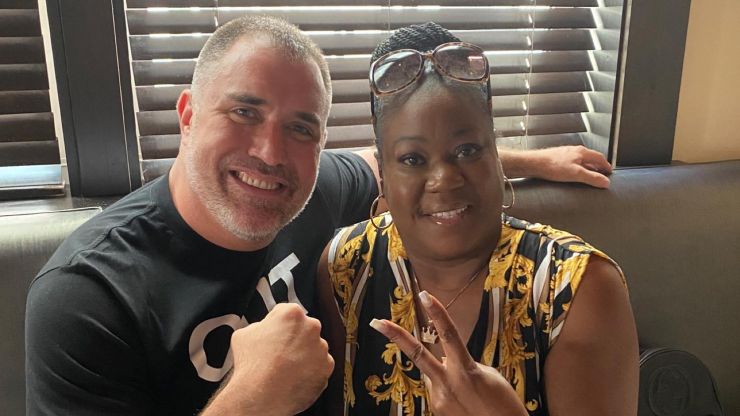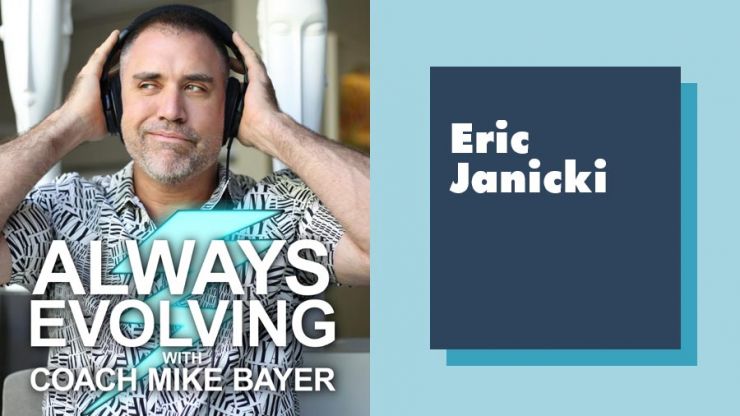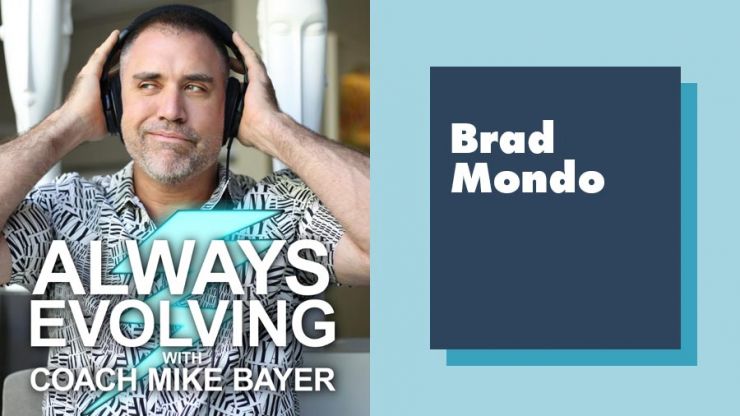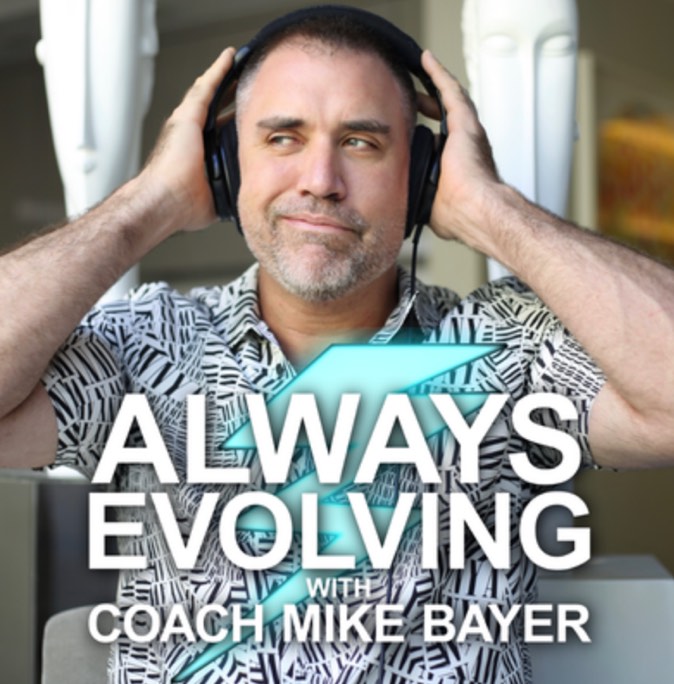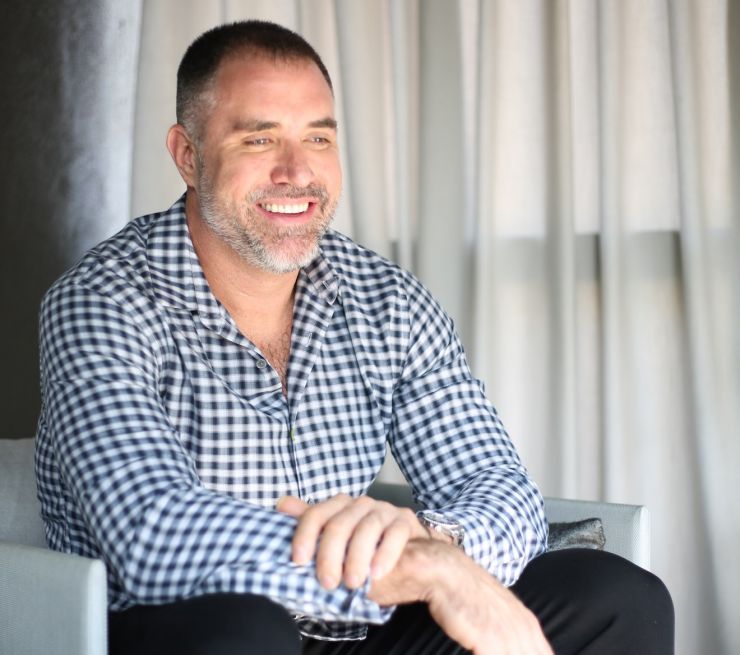
Financial Trailblazer Suze Orman Shares Secrets To Securing Your Financial Future!
06/23/20
DATE: JUNE 23, 2020
PROGRAM: ALWAYS EVOLVING WITH COACH MIKE
SHOW#: CM1021
GUEST: SUZE ORMAN
HOST: COACH MIKE BAYER
(START OF PODCAST)
COACH MIKE BAYER: Welcome back to Always Evolving with Coach Mike Bayer where we are joined by the most incredible experts in their field and synthesize the important information in just about 20 minutes. Today we are thrilled to welcome Suze Orman who I consider one of the OG women in finance. She’s one of the most recognized personal finance experts, a number one New York Times bestselling author, two-time Emmy Award winner, host of the popular Women & Money Podcast, also one of the top motivational speakers. Today as the world sits on a shaky financial ground, Suze is here to inspire us with her words of wisdom and help. Welcome Suze!
SUZE ORMAN: Any time, Captain Mike!
MIKE: I gotta say, to kick things off—I’m such a fan of yours and when I say that you’re an original, OG, in my opinion you kind of trailblazed women being experts in the financial space—I can’t recall prior to you that many women who really had a voice.
SUZE: Well, you know, there were women before me—there was Sylvia Porter, there was Jane Pry-Bryan-Quinn, there were women, but women were never taken seriously in this field, even, do you know that in 1998 The Nine Steps to Financial Freedom was the number one non-fiction hardback selling book of all non-fiction hardback books, okay? Stephen King’s in 1998 was the fiction version of that. It was the number one on the New York Times bestseller list for over one year, and do you know when Business Week magazine put out the top selling, the top 10 selling business books of that year—there wasn’t one book by a woman on that list. So Mike, it took a long time for women to break into the mainstream media of where women were recognized as having a financial, id-you know, a voice. So there were ones before me and they were fabulous but somehow my voice rang true and skyrocketed to the top.
MIKE: What resistance were you met with being a woman?
SUZE: (LAUGHS) Let me just tell you my experience of being hired as a financial advisor in 1980. In 1980 I had just come off being seven years as a waitress at the Buttercup Bakery making $400 a month. The people I had been waiting on all those years got together and lent me $50,000 to open up my own restaurant, told me to take it to Merrill Lynch, I did, and within three months all the money was lost playing the options market So, I didn’t, you know, what did you do? You borrowed $50,000, you’re making 400 a month so I thought I know I can be a broker. They just make you a broker. So I go in to interview for a job as a broker, I think I can do this too. And I met in the manager’s office by a man by the name of Peter Sansivero, who is the manager at the time, and this was the year of affirmative action where they had to hire women because out of the hundred brokers there wasn’t one woman. And do you know what he says to me? He says, “I’m going to hire you, but I’m going to fire you in six months ’cause you know, I really believe women belong barefoot and pregnant.”
MIKE: WOW…
SUZE: That’s what he said to me, and of course I said to him, “How much are you gonna pay me to make me pregnant?” Um, but, you know, ’cause I always said I had this kind of like, sassy attitude that I still have today but that was the resistance and even when I first became, you know, somebody who would go on television and everything, it was so, it was difficult. Even on CNBC the very first year, it was, nobody really took it seriously until I became the number one show on CNBC for almost 13 years, but it was like “Oh Suze, she’s just Suze the Floozy—emotions and psychology.” And you can tell all the men were even getting a little bit freaked out because I had, you know, Nine Steps would sell a million copies in one month.
MIKE: Wow…
SUZE: And, it was a fascinating thing to work my way up as a woman there and be recognized and, you know, even to this day we, we have a place at the table, but we don’t have a place at the head of the table.
MIKE: And, you know, it’s so interesting, this idea and, and I think it may, come from this idea of power that men would know how to manage money better than women—that doesn’t even logically make sense.
SUZE: Yeah. You know, I have a saying that men are financial fakers and they really are and um, the way that I know that is that when I was a financial advisor actually seeing clients and people would come into my office, it was a rule that if you were in relation with somebody your partner, your spouse, whatever, had to be there with you, ’cause it’s both of your money, I’m not gonna plan for one of you and not the other. So normally it would be uh, a man and a, you know, female, man and wife, um, the woman, ’cause the sessions could be long, two or three hours, the woman at some point would undoubtedly go to the bathroom and, which was a long way from where my office was, which was at the end of the hall and while she was gone, I would always then say to the man, her husband, sitting there, I would explain to him the strategy that I really wanted him to do, the most complicated strategy ever that made absolutely no sense, it was total BS. And then the wife would come back, she would sit down and he the whole time would be saying, “Yes, yes—that sounds like a great thing.” And I’m like, “It does, but okay.” And she would come back and I’d sit down and I would say, “All right now, I just went through this whole strategy with your husband. I’d like him to explain it to you.” And he would just go, “Well, why don’t you just do it, Suze? You can do it better job.” I go, “No, I want you to explain it.” And he would go, “Well…” I go, and I know you can’t explain it because nothing I said made sense.” But you know, Mike, they have all this pressure in many relationships, not all, even to this day, where the woman of the household takes care of everything in her house because it holds everything she loves…
MIKE: Mmm.
SUZE: …but still the money, the financial decisions are still on the man of the relationship and, he, what does he know? He listens to Joe at work who got it from John who got it from Jimmy and they all don’t have a clue but they have such pressure on them to be the man of the household still to this day and it just doesn’t work. Which is why I call my podcast the Women & Money Podcast and the men smart enough to listen because you cannot have a relationship that successful in my opinion where both of you are not equally powerful when it comes to money in every single aspect of your finances.
MIKE: Talk to me a little bit about your newest book, The Retirement Guide for 50+, who is this great for?
SUZE: This book is great, don’t you think it’s a great picture, by the way?
MIKE: It is and I actually love how you even get into details about, you know, kids living at home and saving money and…
SUZE: Yeah.
MIKE: …I was like, “Oh, that’s interesting.”
SUZE: Here’s the thing—just a little bit ago I turned 69 and um, what’s interesting is that the very first book I wrote back in 1945—1995 was when I was 45 years of age was Mistakes You Can’t Afford to Make When You Retire, right? You’ve earned it, don’t lose it. Very different writing when you’re younger for a group of people who are going to retire when they are in their 70s, late 60s early 70s, than when you’re there already.
MIKE: Mmm.
SUZE: An emotional part to it, there’s a thing of “Who are you if you’re not working?” So this book is the first book I’ve ever written for those who are 50 years of age and older. Because right now times have changed. Finances have changed. Interest rates have changed—where do you get income from? How long are you gonna work now? How long do you have to work? The markets have gone up, the markets have gone down—real estate is so expensive. So this book does a deep dive in a typical Suze way, into every aspect of your life. What you should do at 50, at 60, at 70 and 80—what do you need to do so that you can live your ultimate retirement and you even know what that means. Like what does it mean to you and to so many of you just go paycheck to paycheck and you don’t have a clue. And for those of you who are younger, if you think that your parents know what they’re doing with money, I’m a gone to tell-here to tell you they don’t. so you wanna get ’em a great present, have them read this book. But most people aren’t just prepared in every possible way—they don’t have a will, they don’t have a trust, they don’t have, you know, the right outlook on life, they keep a house with two lawn—all these things. And so, this is a fabulous book. Rave, rave reviews on Amazon. You know, immediately went to number one on Amazon for a whole week on all books which unheard of, for a finance book, fabulous book I have to tell you, and this is my 10th or 11th book, so I would know.
MIKE: (LAUGHS) And one of the things you talk about is times have changed in terms of retirement. The times have changed of the worker and what retirement looks like, so based on everything going on in the world right now, what is the big change that you’re seeing, or what advice do you have that would be most helpful that they’ll find in this book?
SUZE: Probably that, when to take social security and why. But probably once you have retired, it is essential that you have a three month—a three year, rather, a three year—emergency fund, because so many people when they do retire, they’re living off of all the money that they have in their retirement accounts. A given that today that interest rates are essentially at zero. It makes no sense for anybody to be invested in bonds at this point in time at all if you didn’t do it already years ago. So what do you do with your money to keep it safe and sound? Well, good, you keep it in a savings account at 0% interest rates? I don’t think so. So people now are putting almost all of their money into the stock market and, to get dividends of 5% so they’re at least having their money earn something for them. However, they then find themselves like they did a few months ago where the market goes down 38% and when the market go down that is not the time that you ever wanna have to withdraw money just for you to live on. So I want people, especially retirement to have at least a three-year cash cushion I call it. So in case of a bear market, they don’t cash out a stock, they take it from their cash. All kinds of things like that, plus more, where to invest—everything is in this book.
MIKE: I was gonna ask you because the stock market has been climbing, all of my friend’s businesses, the revenue is cut in half in terms of what they’re making, and so it just seems very unusual right now. And you’ve been through so many cycles of finances—what do you make of all this?
SUZE: I make that this time it’s the most ridiculous time I’ve ever seen. And the reason that I say that is this market went down, then it came all the way up almost again, almost a thousand points up from the top and from the NASDAQ and everything went above where it was when it went down at you know, the beginning of March and now it’s going up, you know, down 1800 points up 700 points, that, whatever it is, it’s all over the place. I think what we see happening right now is that people are coming totally from fear.
MIKE: Mmm.
SUZE: What drives the stock market, believe it or not, besides money and people wanting to invest are the emotions of money—I don’t wanna miss out. They hold onto a stock wishing and hoping that it’s always gonna comes back. And then they sell it and they don’t know how to get, the emotions rule what people do in the stock market, which is why the stock market is totally unpredictable. And I think, believe it or not, what you have happening with all of these gyrations at this point in time are millions of people who are making unemployment than they were when they were working, number one. Number two—these exact same people are in forbearance or, you know, deferment with their student loans, their mortgages, their rent payments, their car payments, they have more money believe it or not, than they’ve ever had in certain circumstances, not everybody obviously, but think about it—you’re making $35,000 a year. Now you’re on unemployment. Now you’re like, getting, depending on your situation, but you’re getting $2400 a month just from the government—do you see what I mean, Mike? There’s so, and you don’t have to spend that money on anything yet, but all that’s gonna come to an end. So what are people doing? They are speculating and trading this market. And when you have people buying a corporation like Hertz, when Hertz is claiming bankruptcy, their bonds are worth 40 cents on the dollar. And they’re driving the stock price up a hundred, 200%, I mean, are they crazy?
MIKE: No, no, to that point—I bought, Live Nation dropped, I bought it for $25, it’s not up to 50 three months later and I’m like, “There’s no concerts going on yet—how is this market just climbing and it just feels, I know you’ve been through so many cycles, what is your prediction of what is gonna be the good and what is gonna be the bad from all of this?
SUZE: The good is that the markets always come back, believe it or not. We learned that in 2008 and 1987, all these markets that I’ve been through. So if you’re in good quality stocks, exchange traded funds, mutual funds, you know, if you have at least five or 10 or 15 years ’til you need this money…
MIKE: Mmm.
SUZE: …then the stock market, if you’re invested and you’re diversified, well then absolutely pay for itself before you even know it again. I have no doubt that by February of next year, things will be smoothed out, earnings will be doing whatever, you know, the corporations, the really good ones, not necessarily the service ones, not necessarily the earning, you know, the airlines and the hotels and things like that although eventually they’ll all come back. But the companies, you know, that are dealing in tech, the companies that are doing certain things for people to work at home and 5G and all this stuff that’s happening—they’re benefitting from all this ‘’cause how many companies don’t need a building anymore? I mean, Twitter announced that everybody’s gonna work at home from now on. Think about how much money that saves Twitter—just think about that. So this downturn has really benefitted mega-corporations in terms of their payroll, in terms of automating in terms of all these. So that will come to play and I think the market will be fine, I think for the next few months you’re gonna see a trading range here of it going back and forth and back and forth but eventually, like I said, probably by next year you’ll be very happy that you stayed in.
MIKE: Mmm.
SUZE: The best way to invest in this market is through dollar cost averaging, which is how most people do it in a retirement account where every single month you put in a specific sum of money and if you don’t know what to buy, just by the vanguard total stock market index fund, or ETF, that buys the whole stock market and really over time you’ll be more than fine.
MIKE: Have you ever given advice and went, like, “Oh my God, what was I thinking?” Or for yourself or for others?
SUZE: Yeah! Oh you bet, I just did that on my podcast, it was, it was funny, it was like, well, last year and you can go back and listen to the podcast and you can hear them, I did a recap March 1st of this year replaying it but I stared to tell people July 21st of last year “Be very careful for February. I don’t have a good feeling, I think February’s gonna crash and…(SFX)” I said it very four times. And people would write me and they’d say, “What’s gonna happen? What’s gonna happen?” I go, “I, I’m just telling you, just listen to me.” And then I’m like, “Why would I tell them that?” And then when it crashed, I went on and I said, “All right, when oil was going down and down and down, I said to everybody this may be the worst advice I’ve ever given but I want all of you to buy XLE,” which was the exchange traded fund for all the oil stocks. And when I did that, it was $35 a share and sure enough after I did that, it went from 35 to 32 to, you know, 25 down to 22 and I’m like, “What was I thinking?” but I kept telling everybody just dollar-cost average. Do this with little amounts of money, and then before you knew it it turned around and like last week it was at 44.
MIKE: Mmm.
SUZE: You know? So if people had done what I said and it was paying a 14% dividend besides at that time. But everybody was like, “Suze, how could you tell people to buy oil? Oil just went negative for $35 a bill. What is wrong with you?” And I’m like, “Okay…” right? And then, you know, it turns out they would have made almost 50% on their money.
MIKE: Mmm…
SUZE: Now it’s going back down again but here’s a problem with doing something like that—I can tell people when to buy something and maybe they listen to it on the podcast, but then if I say, “Sell” and they don’t hear that podcast, they can get themselves in trouble as well. So I decided I’m not going to do that anymore. (LAUGH)
MIKE: I’m with you. Well listen—to, to capture more of uh, what Suze’s talking about in regards to her podcast, uh, you gotta tune into it. It is called Women & Money Podcast. She also has what, 11 books out, and the most recent book is The Ultimate Retirement Guide for 50+. Uh, you’re so refreshing, I love listening to you. Whenever you’re on the television I like, stop and I listen. It’s just, I really, I really mean it. Like you, I love that you’re a woman who has trailblazed and led and been such a guider for so many of us.
SUZE: Thanks Coach Mike—you take care!
MIKE: Thank you Suze for all your brilliant tips and tools. Everyone go out and buy Suze’s new book Ultimate Retirement Guide for 50+: Winning Strategies to Make Your Money Last a Lifetime. And if you liked today’s show download and subscribe today to Always Evolving with Coach Mike. Until next time, stay safe.
(END OF PODCAST)
Other Episodes
